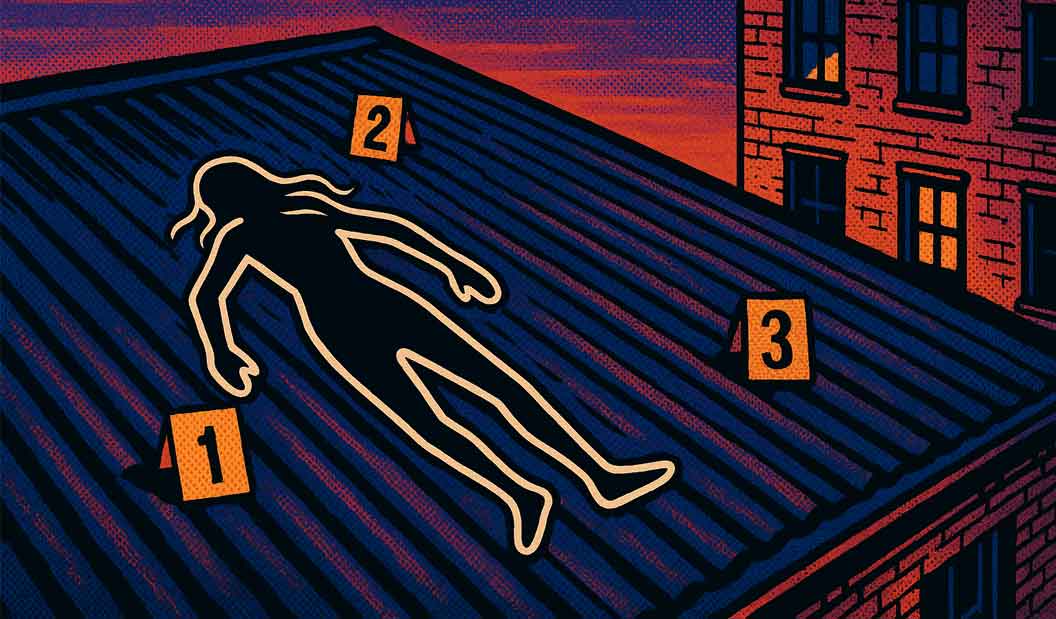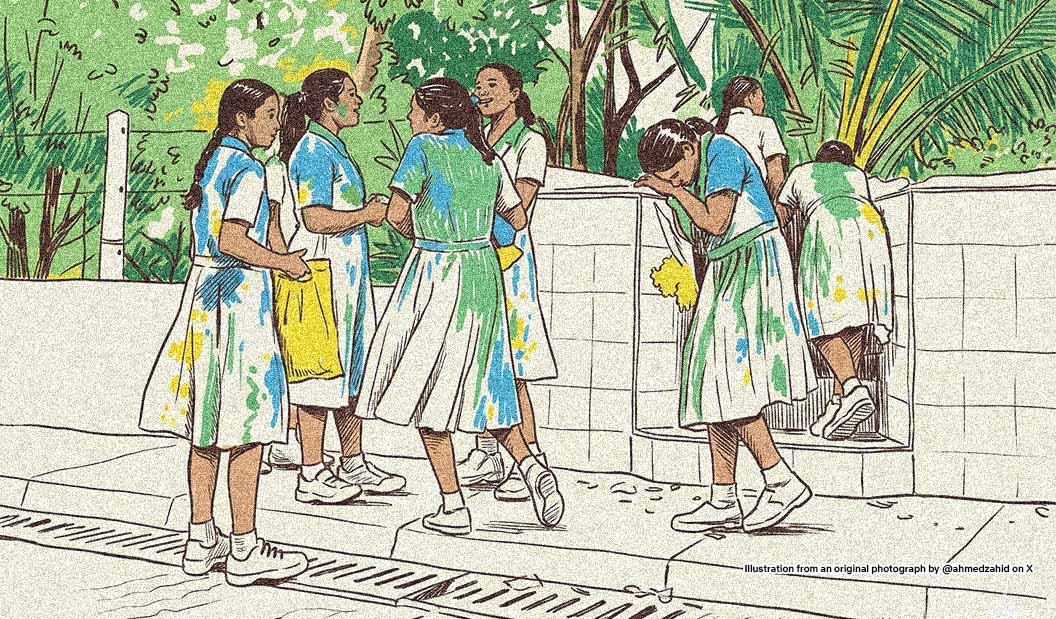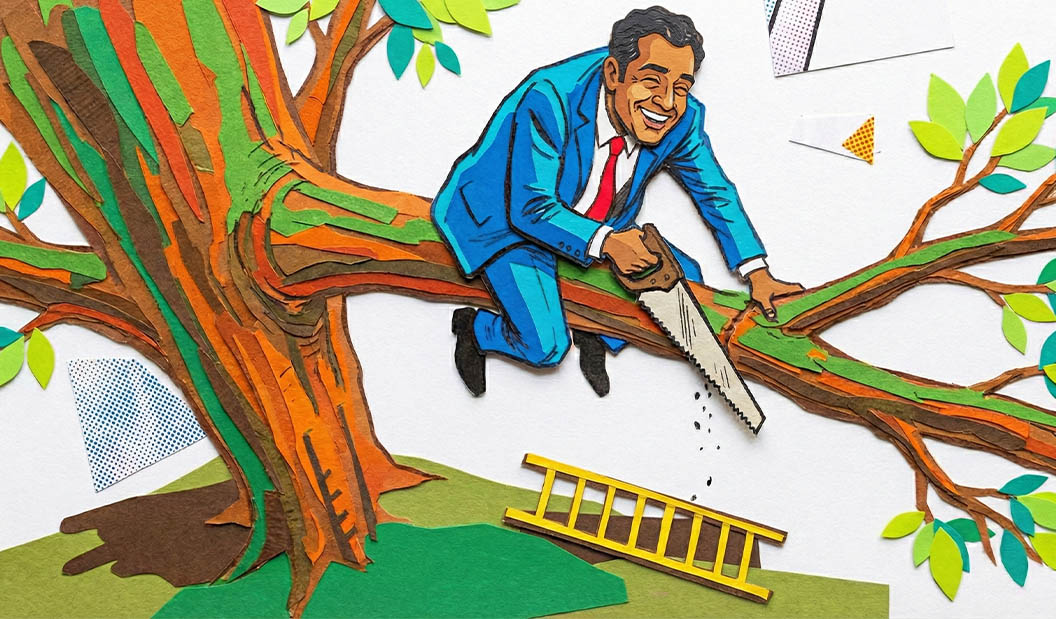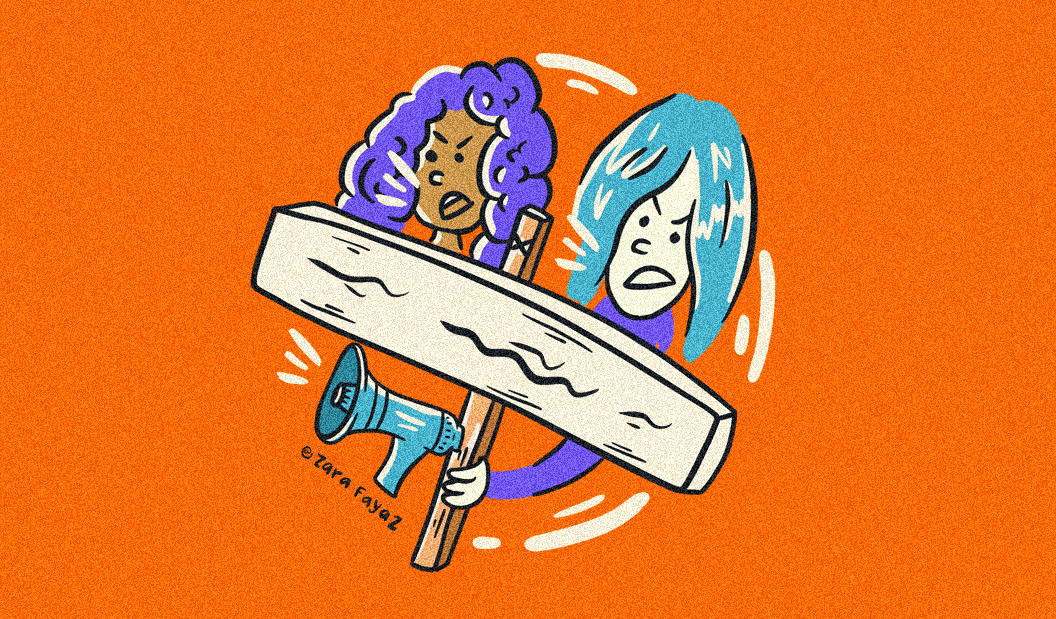The horrific sexual assault case currently unfolding in the Maldives—where a woman lies intubated while alleged perpetrators walk free—brings into sharp focus a crisis of justice and accountability.
But, before we dissect failing institutions or analyse policy frameworks, we must confront this: a woman fights for her life while a society that should protect her has abandoned her at every level. She is not a statistic or a case study—she is a human being whose bodily autonomy was violently stolen, whose dignity was shattered, and whose suffering continues as powerful forces mobilise not to deliver justice, but to obstruct it.
This dual dehumanisation—first in the violence that reduced her to an object, then in the systematic abandonment that renders her invisible—reveals the true moral and institutional bankruptcy at the heart of this crisis.
The horrific sexual assault case represents more than a singular tragedy. It exposes a profound institutional failure. The collective aversion of eyes—from the officials who deny or delay investigations, media organisations that suppress coverage, or merely parrots the authorities’ sanitised narrative and politicians who offer hollow platitudes—amounts to a secondary victimisation as devastating as the initial crime.
The police were quick to disclose the identity of the victim, yet no information has been provided regarding the arrest of the alleged perpetrators.
Meanwhile, the public is forced to resort to social media for news—adding to the discomfort and collective fear among those who are horrified by this violence. It is the secrecy and what feels like attempts to cover up that makes this all the more worrying. When the police are so slow to respond, when the public has to hear about it from anonymous social media accounts, and worst of all, when the police finally do speak, when their version does not seem to add up at all, the disbelief, worry, and fear worsen. Faith in the authorities deteriorates.
Confronting Victim-Blaming Narratives
Let us be absolutely clear: her presence at a party, her prior relationships, her clothing, her consumption of substances—none of these circumstances diminish by one iota her right to bodily autonomy or her entitlement to the full protection of the law. The insinuations and explicit victim-blaming narratives by the authorities represent a morally bankrupt attempt to excuse the inexcusable.
These narratives are not merely wrong—they are strategically deployed to protect perpetrators and provide cover for institutional inaction. When police obstruct investigations based on irrelevant details about a victim’s personal choices, they are not exercising legitimate discretion; they are abdicating their fundamental responsibility to uphold the law equally for all citizens. No circumstance grants law enforcement the authority to selectively apply justice based on personal judgement about a victim’s choices or character.
The Crisis of Accountability
The protection of alleged perpetrators through political connections epitomises the dangerous asymmetry of power that has metastasised throughout the Maldivian justice system. This is not merely corruption—it is state capture manifesting in its most destructive form.
The behaviour of police in this case has been nothing short of revolting—a grotesque betrayal of their fundamental mandate to serve and protect all citizens, and all abandonement of procedural propriety.
Narcotics and Violence: A Deadly Nexus Deliberately Ignored
The Maldives faces a catastrophic drug crisis that authorities refuse to meaningfully confront—a crisis that has created the perfect breeding ground for violence against women. Despite overwhelming evidence directly linking party drugs to sexual assault, policymakers have demonstrated a stunning unwillingness to implement effective measures, leaving a dangerous policy vacuum that perpetrators exploit with devastating consequences.
The nexus between drugs, sexual violence, and impunity represents a triple threat that current policies utterly fail to address. Party drugs create environments where consent is compromised, predatory behaviour flourishes, and victims’ testimony is later discredited due to intoxication—a perfect storm for perpetrators seeking to evade accountability. Yet this well-documented connection continues to be deliberately overlooked in both policy development and law enforcement practice.
Let us be unequivocal: there is no such thing as valid consent when a person is drugged, intoxicated, or otherwise incapacitated. The very premise of consent requires free will, clarity, and capacity—none of which can coexist with sedation or coercion. Any investigative framework that fails to centre this principle is not just flawed—it is complicit. To even entertain the possibility that a woman in such a state could have “consented” is to erase her humanity and enshrine rape culture into law enforcement and judicial practice. Investigators and prosecutors must be held to the highest evidentiary standards, guided by survivor-centred protocols, trauma-informed methodologies, and an unshakeable legal understanding: a drugged body is not a consenting one.
Despite escalating evidence of this deadly connection, there remains a conspicuous absence of comprehensive policies addressing the drug-violence nexus—a failure that amounts to wilful negligence. The political will to confront this issue has been systematically sacrificed at the altar of protecting powerful interests and maintaining a façade of normalcy.
Beyond Performative Outrage
The predictable cycle of public outrage followed by institutional amnesia must end. Without dismantling the structural foundations that protect perpetrators, and abandon victims, no amount of public statements or symbolic gestures will prevent the next assault. The Maldives cannot claim to be a functioning democracy while maintaining enclaves of impunity for the powerful.
This case represents a decisive moment that will reveal whether Maldivian institutions can fulfil their most basic obligation to citizens. The world is watching, international partners are taking note, and most importantly—Maldivian women are asking whether their government values their lives and dignity. The answer thus far has been unacceptable.
It Says You Will Not Be Believed. You Will Not Be Protected.
The way forward demands more than justice for one victim—it requires dismantling the conditions that allowed this to happen. The Maldives must urgently adopt a national framework that criminalises drug-facilitated sexual assault, with clear definitions of incapacitation and non-consent. Legal reforms must bar the use of a survivor’s past to justify investigative neglect or judicial leniency. Independent oversight of how sexual violence cases are handled must be instituted, alongside mandatory trauma-informed protocols in both police and healthcare settings. Survivors must be guaranteed access to robust legal aid, psychosocial support, and a witness protection system free from political interference. A publicly accountable task force should monitor high-profile cases to ensure transparency and justice. Most crucially, there must be a shift in the public narrative—from making excuses for perpetrators to believing survivors. Only when laws, institutions, and collective attitudes align with the lived realities of those most harmed can justice truly take root.




Leave a Reply